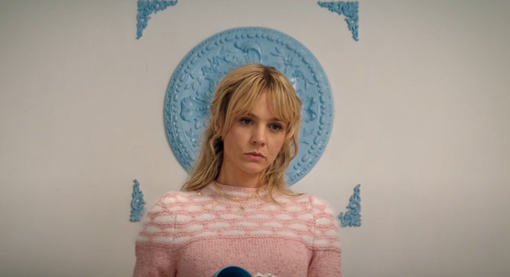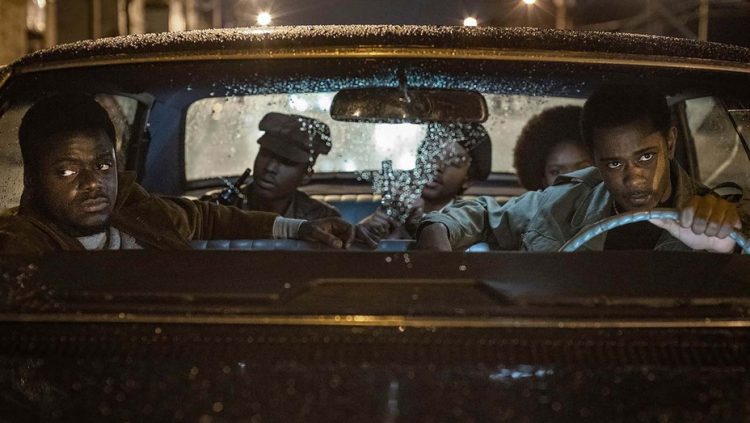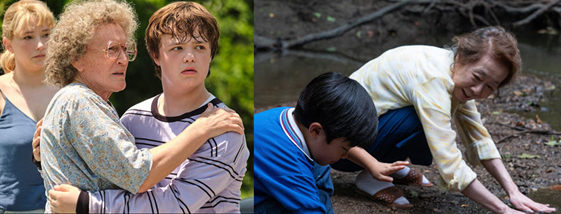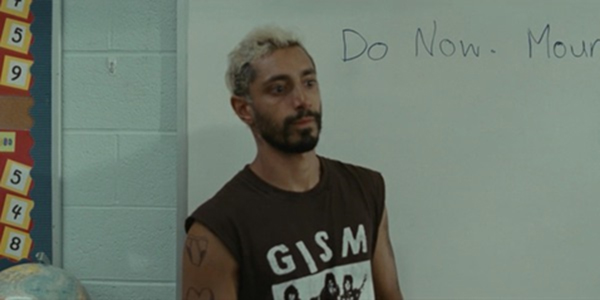Later tonight the Academy Awards will – finally – close the curtain on the strange year in movies that was 2020. It’s been a year and almost three months since “Parasite” earned top honours at the ceremony last year, and the year of the pandemic has shifted much about the movies. Streaming has become king, and the Academy even pushed its eligibility period back by two months, meaning an incredibly late ceremony.
This hasn’t necessarily meant a slate of less worthy nominees, but it has made for a strange kind of prelude to an Oscar ceremony that has felt like a long time coming. Here’s who the Academy saw most fit this year.
Best Supporting Actor
Daniel Kaluuya (at left) and LaKeith Stanfield in “Judas and the Black Messiah”
The two best nominated performances are in the wrong category.
Nominees: Sacha Baron Cohen in “The Trial of the Chicago 7”; Daniel Kaluuya in “Judas and the Black Messiah”; Leslie Odom Jr in “One Night in Miami…”; Paul Raci in “Sound of Metal”; LaKeith Stanfield in “Judas and the Black Messiah”
My Pick: LaKeith Stanfield in “Judas and the Black Messiah”
Last year, 56-year-old Brad Pitt was the youngest of the nominees. This year around, the category skews much younger with only Paul Raci representing the older generation. It’s a mixed category. Cohen and Odom Jr are representing two strong most-male ensembles but neither of the two feels like satisfactory representations of their films, even as awards voters over the last few months have chosen them at the expense of their more interesting co-stars. The strangest part of this category, though, is the dual nominations for the titular leads of “Judas and the Black Messiah”. Kaluuya was, erroneously, campaigned for as a supporting actor to prevent vote-splitting with his co-star, but the Academy allows voters to choose their own categories and so we have two lead performances in the category.
It’s a slap in the face to ignored supporting performances but Kaluuya and Stanfield are the easy stand-outs in the category, which makes their incorrect placements all the more frustrating. Kaluuya is likely to earn a win here, although the unexpected competition from his co-star could be a concern. I’d happily replace Odom Jr with “One Night in Miami” MVP Aldis Hodge, and reward young thespian Lucas Hedges’ career-best performance in the underseen “French Exit”.
Best Supporting Actress
Glenn Close in “Hillbilly Elegy” (at left) and Youn Yuh-jung in “Minari”
This category could become the case of duelling grandmas in Glenn Close and Youn Yuh-jung
Nominees: Maria Bakalova in “Borat Subsequent Moviefilm”; Glenn Close in “Hillbilly Elegy”; Olivia Colman in “The Father”; Amanda Seyfried in “Mank”; Youn Yuh-jung in “Minari”
My Pick: ¯\_(ツ)_/¯
My general ambivalence on this category is not so much a fault of the Academy as it is a generally strange year where the best movies were low on stellar supporting performances. Colman is good in “The Father”, helped by being in the best film of the nominees but it’s a weird category to muster up excitement for. That said, as a representation of the year – this slate is fine if not that inspiring. Theoretically, the odd woman out is Glenn Close in the critically reviled “Hillbilly Elegy” on her eighth nomination. Except, one thing Close has going for her is that her performance is the only nominee who’s easily best thing about their film. In fact, Close is impressive in “Hillbilly Elegy” for the way she wrestles the film into a sharper take on toxic family relations when she’s onscreen. A win would be surprising considering the lack of love for the film but unsurprising in a weird year and as a tribute to an actress that’s much beloved. I’d personally be happy to see her win over this slate of nominees. Elsewhere, Seyfried and Baklova are playing iterations on the ingenue, but neither is dynamic enough even if I like “Mank” more than the wobbly “Borat” sequel.
Youn and Close are both serving similar performances as iterant grand-matriarchs, but in “Minari” I only have eyes for Han Ye-ri. It’s likely the choice comes down to the two bolstering grandmothers with “Minari” emerging successful, but who knows? It’s a weird category that might have benefitted from the comedic inflections of Scott Thomas in “Military Wives” and a note perfect Mahaffey in “French Exit”
Best Actor
Nominees: Riz Ahmed in “Sound of Metal”; Chadwick Boseman in “Ma Rainey’s Black Bottom”; Anthony Hopkins in “The Father”; Gary Oldman in “Mank”; Steven Yeun in “Minari”
My Pick: Riz Ahmed in “Sound of Metal” OR Anthony Hopkins in “The Father”
This is the closest thing to a perfect slate of nominees this year. Even the nominees I’m less passionate about here are working in tandem with their respective directors to create singular characters that strengthen their respective films. The excitement of three young actors (Ahmed, Boseman, and Yeun) earning their first nominations is a bit undercut by the knowledge that we won’t get to see where the late Boseman’s career would have grown from his work in “Ma Rainey’s Black Bottom”. His is probably the most easily predicted Oscar win of the evening, even if I’m more partial to Ahmed (as a man acclimating to his deafness) and Hopkins (as a man grappling with his dementia) who both give tour-de-force performances in real world that seem tinged with horror. If I could, I’d keep Ahmed and Hopkins and replace the rest of the slate with my three alternate nominees. Rahim turns a prosaic role into something seminal in “The Mauritanian”, and Marinelli is the linchpin in the excellent “Martin Eden”. In a better world, though, acting legend Delroy Lindo would be doing a cakewalk to an Oscar for his performance in “Da 5 Bloods”.
Best Actress
Nominees: Viola Davis in “Ma Rainey’s Black Bottom”; Andra Day in “The United States vs Billie Holiday”; Vanessa Kirby in “Pieces of a Woman”; Frances McDormand in “Nomadland”; Carey Mulligan in “Promising Young Woman”;
My Pick: Carey Mulligan in “Promising Young Woman”
In one corner we’ve got two Oscar winning thespians (McDormand and Davis) in critically acclaimed performances that play on their familiar star qualities, in another corner we’ve got two first-time nominees (Day and Kirby) keeping two erratic films afloat with their performances and then we’ve got returning nominee (Mulligan), who really should be easily gliding to the podium, right? Alas, no. Each of these women has picked up a key win from a previous award ceremony. Since Kirby won accolades at Venice last year, it’s been months of all these women being rewarded with Mulligan besting two of her fellow nominees at the Spirit Awards last week. You can make a case for any nominee, and knowing the way actors love seeing other actors play real people Andra Day’s star-is-born work in the very rocky “The United States vs Billie Holiday” would make sense. But this really should be Mulligan’s year. Her work here is a far-cry from her previously nominated turn in “An Education”, but retains her capacity for creative acting choices, precise vocal work and a talent for injecting subtlety in surprising moments. It’s the easiest choice of all the acting categories for me, although it’s anyone’s guess if she will win. The competition would be more interesting if she were joined by the four women who should have been nominated. Beharie and Winslet in particular feel like logical nominees that should have earned more plaudits in a marvellous year for women.
Best Picture
The Nominees: “The Father”; “Judas and the Black Messiah”; “Mank”; “Minari”; “Nomadland”; “Promising Young Woman”; “Sound of Metal”; “The Trial of the Chicago 7”
My Pick: “Promising Young Woman”
Just my luck that I bucked critical trends this year and my least favourite nominee is the most critically acclaimed and likely winner, “Nomadland”. Chloé Zhao’s contemporary tale of Americana filtered through the eyes of the newly nomadic Fern makes a lot of sense as an American film to represent the year, although I remain ambivalent about pretty much everything in it. The actual nominees make for an interesting and varied collection of films. The somewhat polarising “Promising Young Woman” is my favourite, both for its nerve and also for its clear-eyed awareness of just what it wants to do. It’s very much its own thing, which I appreciate in a year when so many films feel like they’re doing variations on familiar themes.
Of all the films nominated across all the categories at the Oscars, the best one is Best International Film nominee “Quo Vadis, Aida?”. The Bosnian entry, expertly directed by Jasmila Žbanić puts this list of (mostly good) films to shame. It’s not too late to do a do-over and announce it as a write-in candidate for the top prize.





